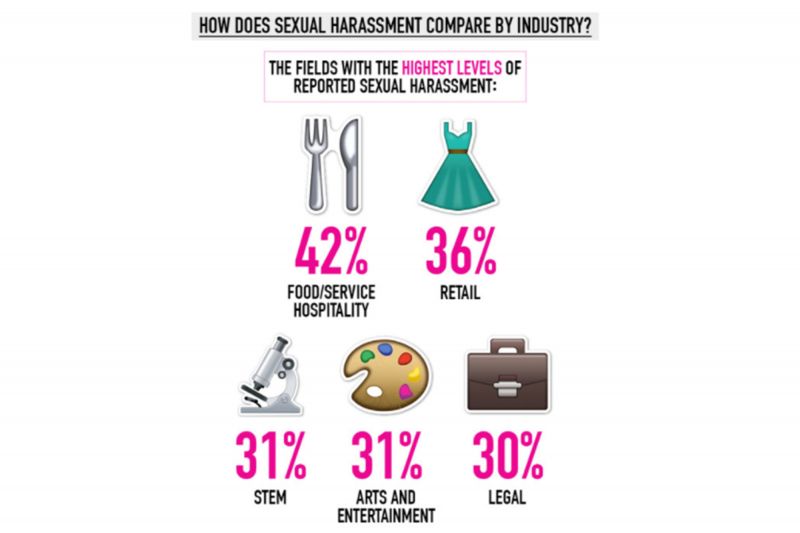
Cosmopolitan Magazine surveyed 2,235 women and found that 1 in every 3 have been sexually harassed at work.
Whether you doubt the credibility of the magazine, or choose to believe that specific statistic is immaterial, copious amounts of data prove that sexual harassment in the workplace is most definitely ubiquitous. The following video has been making its rounds and shedding light on an issue that may hit too close to home. For full effect we recommend watching it first without our description on its content.
Disclaimer: This video is based on real-life events and the dialogue and actions maybe offensive to some – watch at your own risk.
Cosmo teamed up with David Schwimmer to create a chilling series and campaign entitled #ThatsHarassment, originally adapted from Israeli-American director Sigal Avin’s short doc-series on the same subject. Avin’s intention was to educate people of the despicable truth of sexual harassment in the workplace since there was little to no visual material to combat the issue.
She reached out to Schwimmer who enlisted the help of Mazdack Rassi, co-founder and creative director of Milk Studios in New York City, to create 6 videos based on real life scenarios. As can be clearly seen in the video herein, the creative field, our field of photography, is not exempt in the slightest.
In a world plagued with misogynistic media and sexually objectifying behavior, it is our job as members of a functioning society to be better. Too often do we find that members on a set, like those depicted in the video, stand around and don’t do anything to stop what is obviously a play of power.
This video is just a small glimpse of one faction of sexual harassment that occurred in our industry. Its echo should be heard across all industries and professions as a call-to-action to end such abhorrent behavior, and to make the workplace a safer environment.
Schwimmer’s comments on the intent and purpose of the pieces really say it all:
The whole purpose of this is to encourage people and to give them the courage to speak out if they’re a victim themselves of harassment, or if they witness or are aware of sexual harassment. The reality [is that] this kind of harassment takes place in the workplace, in a professional environment. And that means it’s about power. The problem is that people don’t step forward or say something if they’re witnessing it because of fear of retaliation. The more you’re surrounded by other people who agree and see that something is wrong, the easier it is for someone to step forward. You feel like you have an army behind you.
It’s simple to place the blame on one individual, but are you equally at fault for not speaking out?





Get Connected!